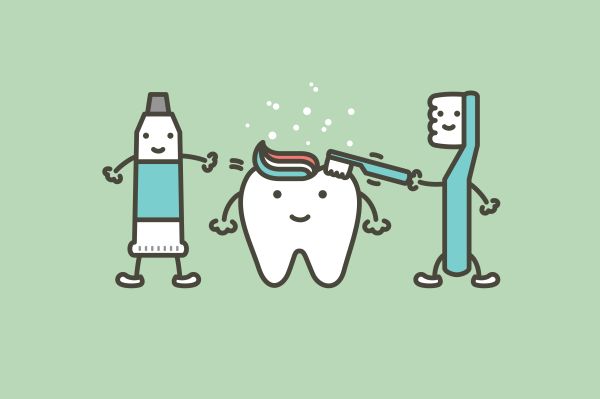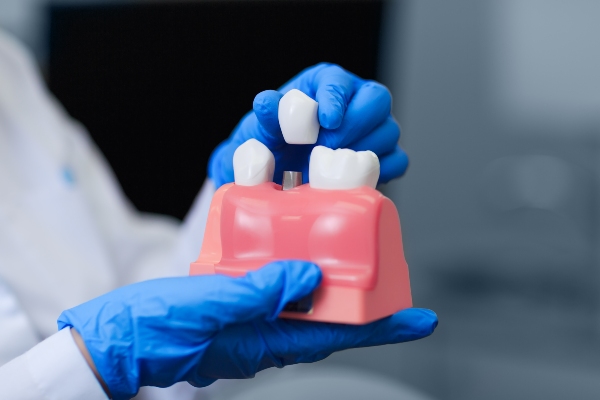FAQs About Sensitive Teeth

Sensitive teeth can be incredibly uncomfortable, and they lead many to alter the way they live their daily lifestyle, making them less productive and less happy throughout each day. Fortunately, there are several effective forms of treatment available to patients with sensitive teeth.
Sensitive teeth frequently asked questions
There are certain questions that dentists receive more often than others when it comes to the cause, diagnosis and treatment of sensitive teeth. The following are answers to four of the most frequently asked questions about sensitive teeth, including insight into the signs of sensitive teeth and how they are treated.
What causes sensitive teeth?
Underneath the dental enamel and inside the dentin are nerves. When enamel erosion occurs and the dentin is exposed, these nerves produce a painful feeling when exposed to a substance, especially heat, cold and pressure. In many instances, determining the cause of sensitive teeth starts with determining the cause of dentin being exposed, which might be the result of a cavity or damaged tooth.
Can sensitive teeth lead to other complications?
Sensitive teeth are often a symptom of a larger issue, such as a tooth infection or gum disease. If ignored, this larger issue can become even worse and might even result in the loss of the tooth. Thus, it is important to visit the dentist if one or more tooth is sensitive in order to receive effective treatment and ensure the underlying issue does not get any worse. There are times when good oral hygiene is enough to reduce sensitivity, but when in doubt, it is important to visit the dentist for treatment.
How are sensitive teeth treated?
The treatment for sensitive teeth depends largely on the cause. If the issue is gum disease or gum recession, your dentist might recommend an antibacterial toothpaste and mouthwash and scaling and root planing to treat the issue. If teeth are sensitive due to a damaged tooth, a crown can be placed to cover the tooth. If there is a tooth infection, then a root canal might be necessary.
When should I visit the dentist for sensitive teeth?
In some instances, sensitive teeth can be relieved by practicing good oral hygiene and dietary changes. However, if sensitive teeth last for more than a week or become intolerable, then it is time to visit the dentist for in-office diagnosis and treatment. Your dentist can conduct an oral examination and order dental X-rays if necessary to determine the cause of the sensitivity, which they can then effectively treat in most cases.
Talk to a dentist about sensitive teeth today
Tooth sensitivity is a concerning symptom that should be treated with a sense of urgency, especially if it causes increased discomfort or exists alongside other symptoms. If you suffer from sensitive teeth and want to find out how treatment can help you become pain-free once again, consult with us today and schedule a time to come in for an initial consultation, during which we can diagnose the issue and recommend treatment.
Are you considering sensitive teeth treatment in the Forest Hills area? Get more sensitive teeth information at https://metrosmiles.com.
Check out what others are saying about our services on Yelp: Read our Yelp reviews.
Recent Posts
Most people want to have dental implants right after dental extraction. Replacing the lost tooth is a priority. This can prevent more complications as the mouth heals. Understanding the process of getting implants after dental extraction can help prepare you for your appointment. Here are the details about getting dental implants after a dentist removes…
Peri-implantitis is a painful condition that affects the dental implant site. If left untreated, the consequences are irreversible, so it is important to maintain a checkup schedule with an implant dentist. However, an implant dentist can save your implants, gum tissue, and jawbone without much hassle if caught in its early stages. This article will…
Getting dental implants as a replacement for removable dentures can be a rewarding move. These restorations are stable and lasting. You can smile, laugh, eat, and speak without worrying that they will slip out of your mouth. Here are the benefits of getting dental implants over removable dentures.Dental implants are effective in restoring teeth. Unlike…
People with tooth loss can smile with confidence again, thanks to the help of an implant dentist. Tooth loss can greatly impact a person's quality of life, affecting how they speak, eat, and feel about their smile. Also, tooth loss can eventually lead to bone loss and changes in facial structure. Fortunately, an implant dentist…


